News
Suspension of Edo LG Chairmen: Your action is null and void-Presidency tells Okpebholo
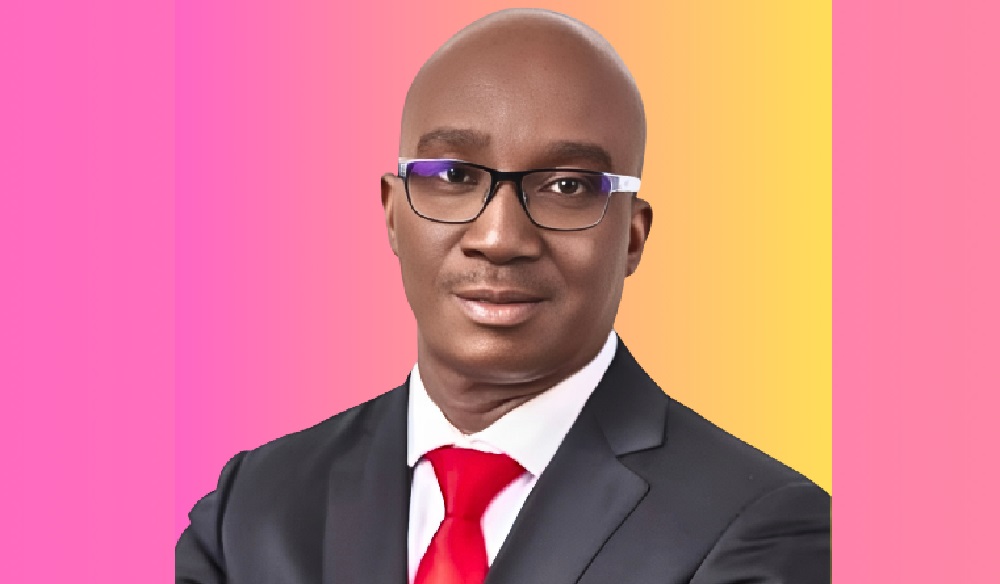
The Attorney-General of the Federation and Minister of Justice, Prince Lateef Fagbemi, SAN, has declared the suspension of Chairmen and Vice Chairmen of the 18 Local Government Areas, LGAS, in Edo State as illegal and unconstitutional.
The AGF, who spoke to journalists in Abuja yesterday, stressed that removing from office or suspending any elected LG official in the country is the prerogative of Councilors in the said LGA.
The Justice Minister said his position was based on the July 11 judgment of the Supreme Court that granted autonomy to the 774 LGAs in the country.
“One thing that I know and can say without fear is that under the present dispensation, no Governor has the right to remove any local government chairman.
“That much I know. If I did not know before, since July 11, 2024, I became aware that removal of any local government chairman or official would be the prerogative of that local government, through their legislative house,” the AGF stated.
However, he said his initial reluctance to react to the development was because he wanted to know the basis upon which the LGA officials in Edo state were reportedly suspended.
It will be recalled that the Edo State House of Assembly suspended the chairmen and vice chairmen of the LGAs for two months over their alleged gross misconduct and insubordination.
The Assembly directed the council leaders to hand over to the legislative leaders of their respective local governments.
The action followed a letter from Governor Monday Okpebholo, who accused the council officials of insubordination, alleging that they failed to submit their financial reports from September 23, 2022, to date, as directed.
The LGA officials had since rejected their purported suspension, even as they vowed to remain in office till the expiration of their tenure in 2026. Meanwhile, speaking about ongoing reforms in the justice sector, the AGF said the development and adoption of the 2024-2028 National Policy on Justice would help to address the challenges militating against the effective administration of justice in Nigeria.
He said the federal government would in line with its determination to decongest the prisons, continue to train judges on the need to embrace the award of non-custodial sentences like community service, as provided for in the Administration of Criminal Justice Act, ACJA, 2015 and Nigerian Correctional Service Act, NCSA, 2019.
“The ACJA, 2015, seeks to reform the administration of criminal justice through the speedy dispensation of justice, protection of human rights, accountability, and oversight between and amongst criminal justice institutions.
“Since its enactment, the Ministry has been leading efforts to ensure its effective implementation to ensure citizens access justice and the protection of their rights.
“The Ministry, through various platforms, supported states to replicate the Act, through the adoption of their ACJL.
“Today, I am happy to report that the 36 states of the federation now have their states ACJLs, which, to a very large extent, replicates and further strengthen the provisions of the ACJA for effective implementation a the state level.
“The Justice Ministry is currently collaborating with the Ministry of Interior and Nigerian Correctional Service to conduct an audit of the Correctional Centres to ascertain the number of inmates, the condition of the correctional centres, the number and different categories of inmates in the correctional centres.
“The first phase of this audit conducted in 9 states and the FCT, took place between 21st – 25th November, 2024, and it is hoped that when concluded, the outcome will assist the federal government in initiating and implementing appropriate policies and programmes that will enhance effective management of the correctional service.
“While these achievements are commendable, we must remain focused on addressing existing challenges,” the AGF stated.
News
Speaker Gambia National Assembly Calls for Urgent Action on ECOWAS Crisis
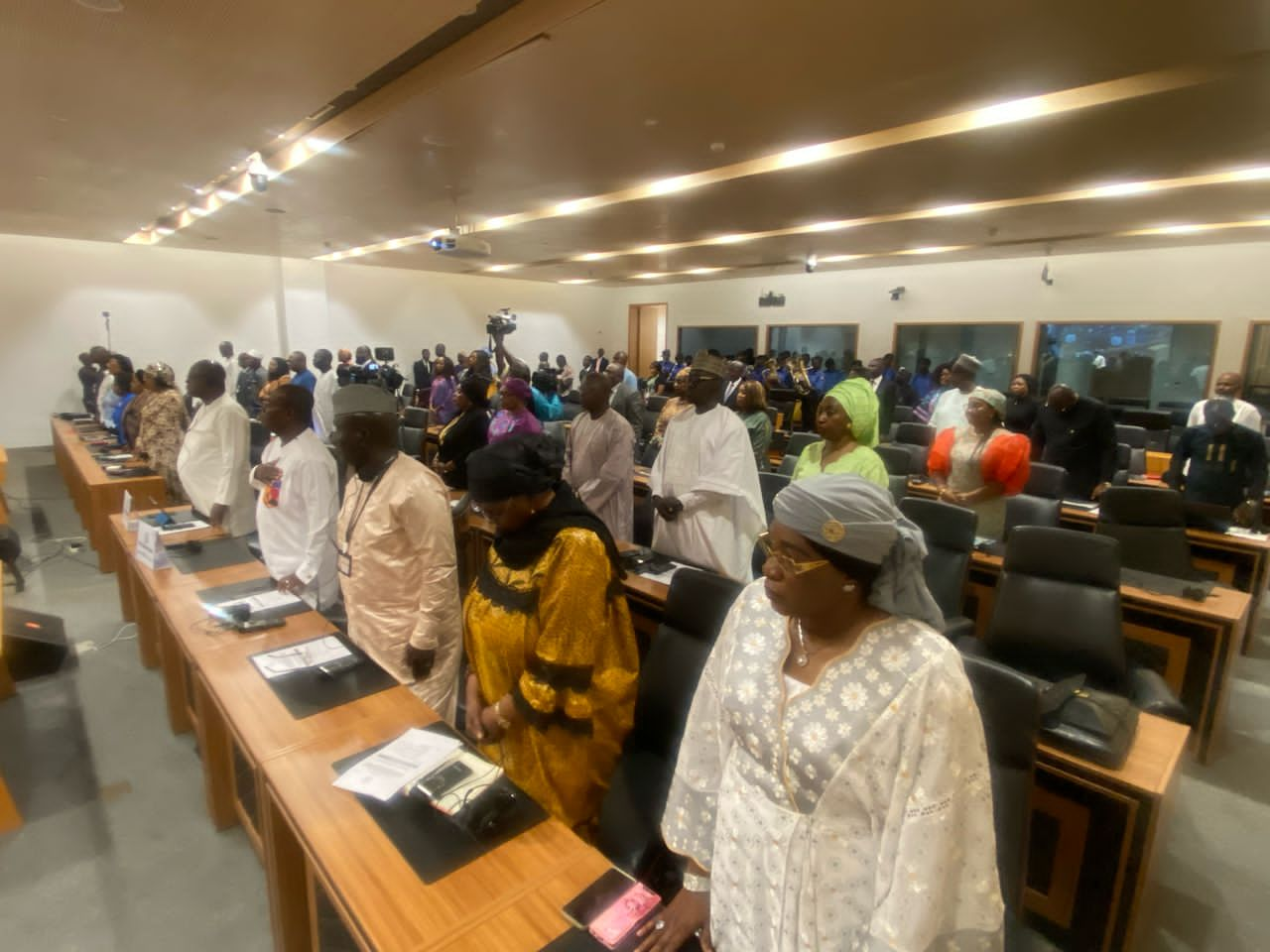
…as foreign minister say member states must be united
By Gloria Ikibah
Speaker of The Gambia National Assembly, Hon. Fabakary Tombong Jatta, has urged members of the ECOWAS Parliament to face the realities of the region’s challenges following the withdrawal of Burkina Faso, Mali, and Niger from the regional body.
Speaking at the opening of the Delocalised Meeting of the ECOWAS Joint Committees on Monday in Banjul, The Gambia, Hon. Jatta said, the joint committee meeting was to ‘Consider the Political, Socio-Economic and Humanitarian Impact of the Withdrawal of Burkina Faso, Mali and Niger from ECOWAS’.
The Speaker who highlighted the importance of the theme, said the situation demands deep reflection.
He said: “The theme under which this meeting is convened is not merely a topic for discussion; it calls for a deeper introspection of the founding principles of ECOWAS and to what extent these principles are serving the wishes and aspirations of our Citizens”.
The Speaker described the withdrawal of Mali, Burkina Faso, and Niger on January 29, 2025, as the most significant crisis in West Africa’s regional integration since the founding of ECOWAS in 1975.
He praised ECOWAS’s approach to the crisis, noting, “It is however worth noting that despite the major setback the withdrawal represents, ECOWAS measured and pragmatic approach shows the commitment to building bridges for cooperation and is highly commendable.”
Hon. Jatta therefore urged parliamentarians to recognize the complex causes of the withdrawal, as he said that the withdrawal could disrupt trade, increase security threats, and affect cross-border communities.
“As you take stock and deliberate on the impact of the withdrawal of the Alliance of Sahel States, do not lose sight of the fact that the departure of the Sahel states reflects a complex web of security concerns, geopolitical realignments and institutional failures.
“The immediate impact includes the potential disruption of established trade routes and economic zones. Port cities and transit trade could experience an economic downturn and cross-border communities and traditional trade networks may face challenges,” he said.
The Speaker warned about wider implications for African unity. “The split of ECOWAS poses profound implications for the African Union’s broader integration agenda, challenging current realities and future assumptions,” he said.
Despite the challenges, Hon. Jatta expressed optimism. that the resolutions that will emerge from this meeting would include strengthening the arm of parliamentary diplomacy to the Sahel states through constructive engagements and collaborations.
“Choosing isolation over regional cooperation would result in economic isolation and increased maritime access costs as landlocked nations. Additionally, they risk reduced foreign direct investment due to perceived instability and limited market access,” he added.
Hon. Jatta therefore called for dedication and urgency. “As parliamentarians, we have a crucial role to play in making this vision a reality. We must, therefore, approach our deliberations with a sense of urgency, commitment and determination, knowing that the hopes and aspirations of millions of ECOWAS citizens rest on our shoulders.
Without any shred of doubt, I am confident that, together, we can overcome the challenges before us and pave the way for a more integrated, peaceful, and prosperous ECOWAS region,” he said.
In his goodwill, Minister of Foreign Affairs of The Gambia, Dr. Mamadou Tangara, called on ECOWAS member states to strengthen unity and solidarity as the region faces critical political and security challenges.
Dr. Tangara noted its significance as the regional body marks its 50th anniversary.
“Your decision to organize this important delocalized sitting in Banjul is a clear testimony of your strong commitment to bring ECOWAS closer to its citizens. “The Government of The Gambia salutes this lofty decision of the Sixth Legislature”, he said.
Addressing the theme of the sitting, the withdrawal of Burkina Faso, Mali, and Niger from ECOWAS, Dr. Tangara described it as unfortunate butemphasised hope for reconciliation.
He stressed that the vision of the founding fathers of ECOWAS and the African Union must continue to guide the region.
“We are all better off together as one family; one united West Africa with a common history, geography and destiny. We can overcome our disagreements and differences. We have the capacity, the readiness and willingness to achieve regional unity.
“Our unity is our strength. Let us work towards attaining African unity as encapsulated in the vision and dreams of the founding fathers,” Dr. Tangara urged.
The Foreign Minister reflected on the original goals of ECOWAS, describing the organization as a symbol of Pan-Africanism and economic emancipation.
And cautioned that the withdrawal of member states could weaken the dream of a united Africa.
“At the heart of the founding of ECOWAS was the recognition of the need for greater Pan-Africanism, African unity, solidarity and the economic emancipation of our states from the vestiges of colonialism.
“Any withdrawal from any of those building blocks by member states undermines African unity, integration and solidarity,” he stated.
Dr. Tangara therefore called for continuous engagement with Burkina Faso, Mali and Niger, as he said, “we cannot lose hope or patience and adopt abandonment as a policy.”
Dr. Tangara emphasised the many achievements of ECOWAS, from peacekeeping efforts to trade and free movement across borders, and challenged the notion that democracy and good governance are foreign to Africa.
“Some of our countries are enjoying peace today thanks to the sacrifices and invaluable contributions made by ECOWAS and its member states. The free movement of goods and people across our borders has become a standard being emulated around the world.
“African citizens have and nurture expectations that they will participate in the choice of their leaders and that their governments will govern justly based on rule of law and respect for human rights,” he said.
Dr. Tangara urged the delegates to focus on pragmatic solutions and regional cooperation, especially in light of growing security threats.
“No state in the region is secure without the security of other states.
“Our common history, our diverse peoples, our shared geography, our rich culture, our collective security and mutual prosperity place a unique burden on all of us here present to pursue unity, integration and prosperity,” he said.
News
True Democracy Means Everyone Must Have a Voice – Speaker Abbas
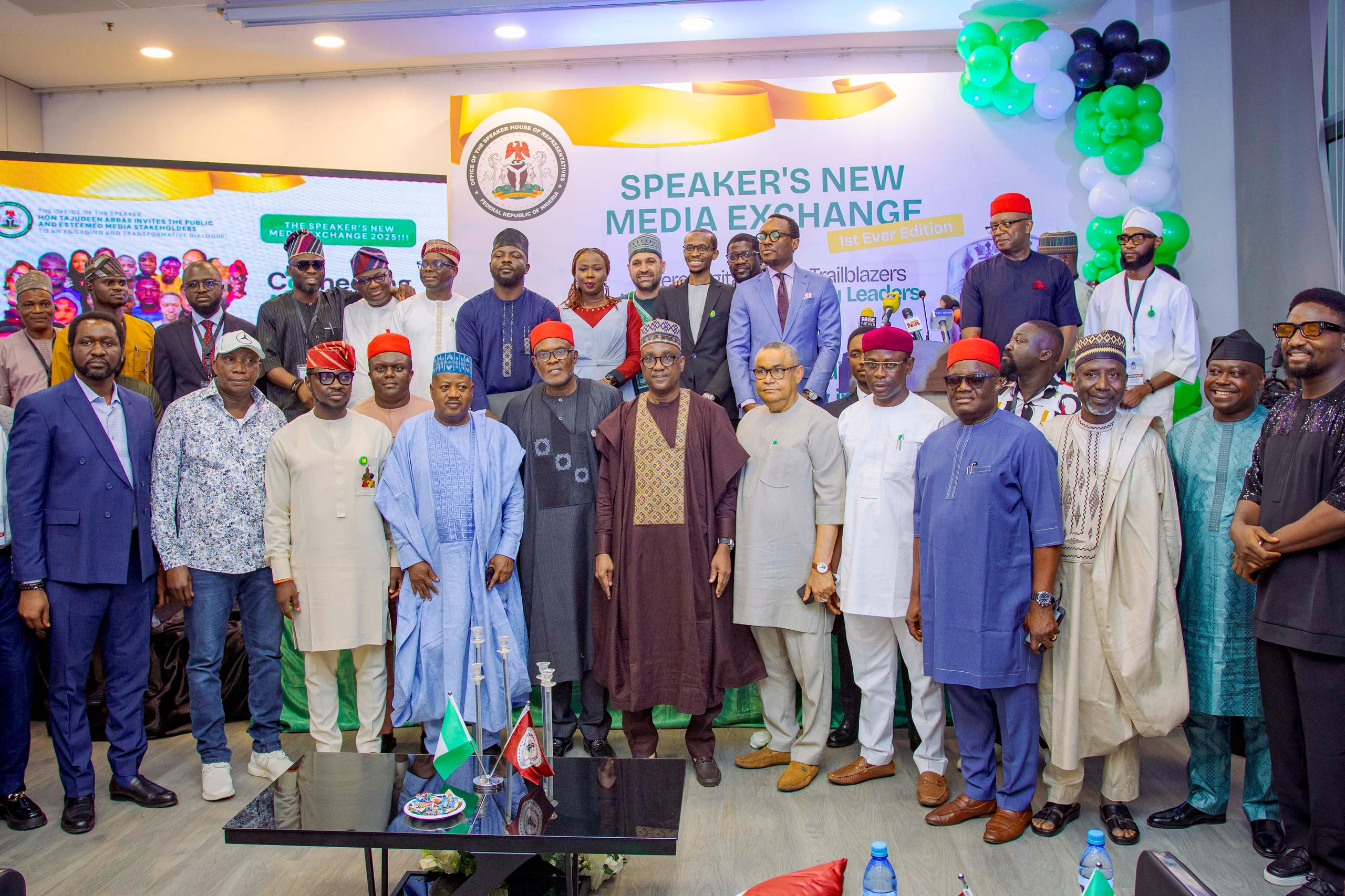
…as young Nigerians, social media influencers push for free speech, national unity
By Gloria Ikibah
Speaker of the House of Representatives, Tajudeen Abbas, says the strength of Nigeria’s democracy should be judged by how much all citizens, especially key groups, are included in decision-making.
Speaker Abbas who stated this while meeting with a group of social media influencers, many of them young Nigerians, at the ‘Speaker’s New Media Exchange 2025’, stressed the importance of youth voices and the role of online platforms in shaping the country’s democracy on Monday in Abuja.
News
Igbo Traditional Rulers Pledge Support for President Tinubu’s Re-Election In 2027
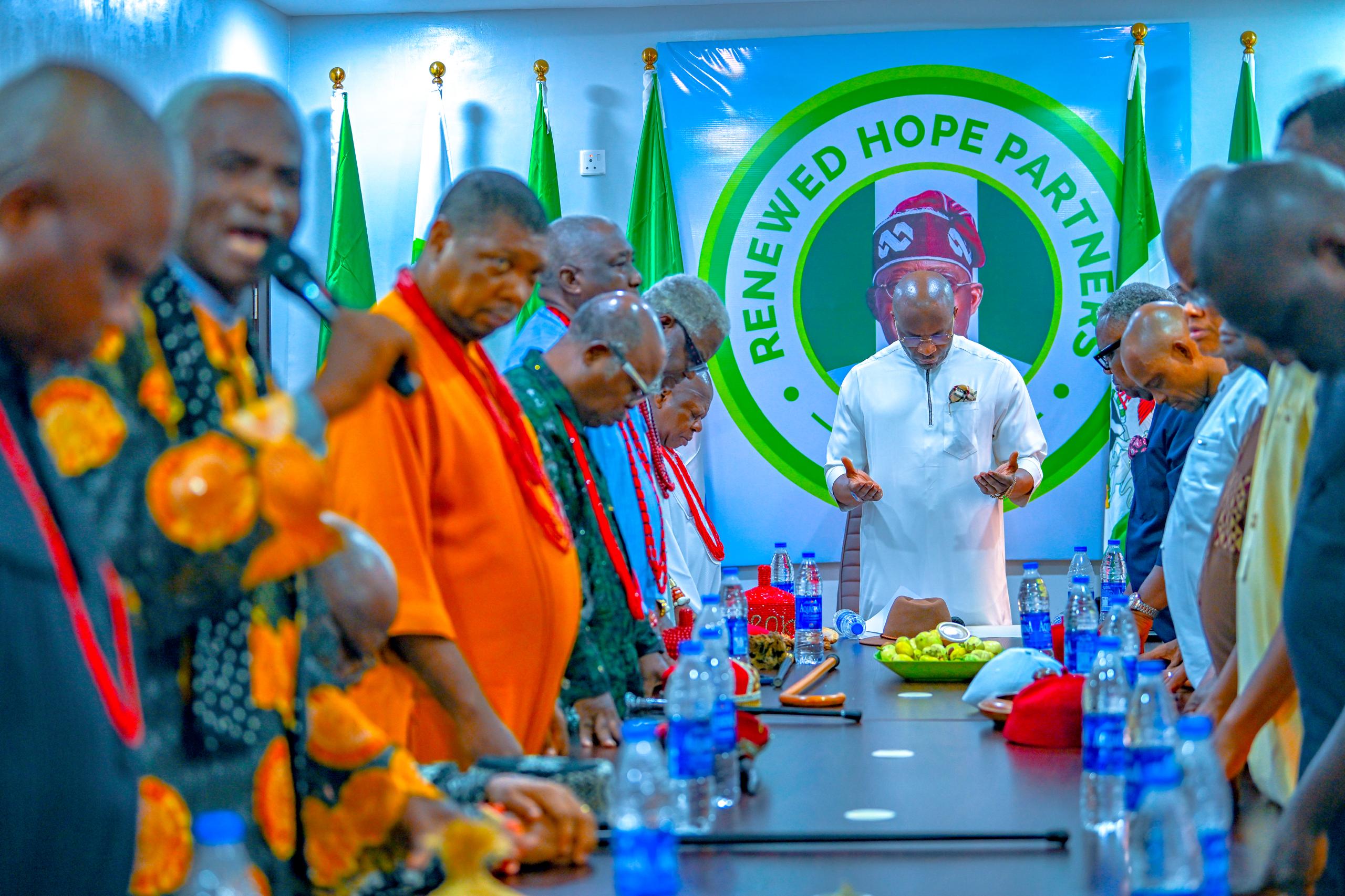
-

 News15 hours ago
News15 hours agoInsecurity: BUDA urges govt to quickly rescue Baruten from terrorists
-

 News20 hours ago
News20 hours agoJust in: Senator Natasha tenders satirical ‘apology’ to Akpabio
-

 News16 hours ago
News16 hours agoUNUSUAL! Without invitation, Police declared me wanted — Daughter of ABC Transport owner
-
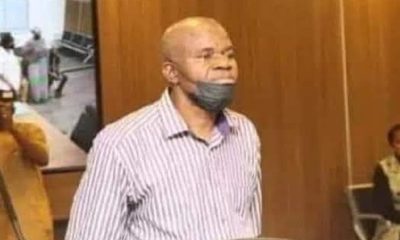
 News11 hours ago
News11 hours agoBreaking: Late gospel singer Osinachi’s husband sentenced to death by hanging
-
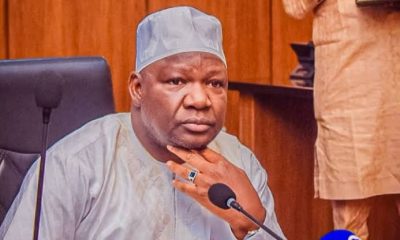
 News13 hours ago
News13 hours agoWeeks to 2nd anniversary, Niger deputy gov, plans to resign, move out personal effects
-

 Metro22 hours ago
Metro22 hours ago‘My husband always makes love throughout the night until morning’ – Woman Wants Divorce
-
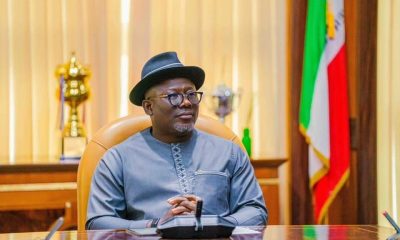
 News18 hours ago
News18 hours agoGov Oborevwori’s top aide suddenly resigns from govt
-

 Entertainment16 hours ago
Entertainment16 hours agoMy tongue slipped, Annie Macaulay apologizes after referring to Herself as ‘Idibia’ at Headies 2025


















